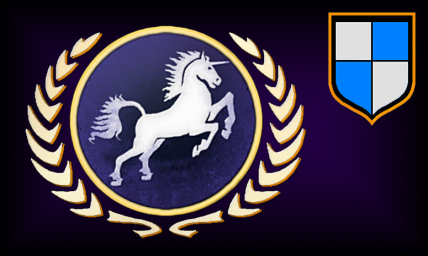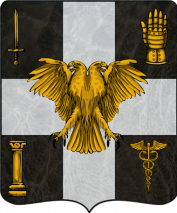Nintendo Switch Parental Controls wrote:Isn't winter over? Or are you in Australia?
The winter that shall come for TNP knows no seasons.
Advertisement

![]() by Harenhime » Sun Mar 31, 2019 11:16 pm
by Harenhime » Sun Mar 31, 2019 11:16 pm
Nintendo Switch Parental Controls wrote:Isn't winter over? Or are you in Australia?


![]() by Marilyn Manson Freaks » Mon Apr 01, 2019 7:17 am
by Marilyn Manson Freaks » Mon Apr 01, 2019 7:17 am

![]() by Frattastan IV » Mon Apr 01, 2019 11:30 am
by Frattastan IV » Mon Apr 01, 2019 11:30 am
Glacikaldr wrote:Please liberate us from the gangs
Draganisia wrote:Also it seems the next war could be NPO fighting directly against Pacifica.

![]() by Lord Dominator » Mon Apr 01, 2019 11:34 am
by Lord Dominator » Mon Apr 01, 2019 11:34 am

![]() by Nintendo Switch Parental Controls » Mon Apr 01, 2019 1:13 pm
by Nintendo Switch Parental Controls » Mon Apr 01, 2019 1:13 pm


![]() by Pallaith » Mon Apr 01, 2019 11:08 pm
by Pallaith » Mon Apr 01, 2019 11:08 pm


![]() by Marilyn Manson Freaks » Tue Apr 02, 2019 7:57 am
by Marilyn Manson Freaks » Tue Apr 02, 2019 7:57 am

![]() by Bowzin » Tue Apr 02, 2019 3:41 pm
by Bowzin » Tue Apr 02, 2019 3:41 pm

![]() by Grater Tovakia » Tue Apr 02, 2019 4:34 pm
by Grater Tovakia » Tue Apr 02, 2019 4:34 pm
Bowzin wrote:You may think the war is over, but The Anti Rejected Coalition (ARC) does not agree!

![]() by Frattastan IV » Wed Apr 03, 2019 1:20 am
by Frattastan IV » Wed Apr 03, 2019 1:20 am

Draganisia wrote:Also it seems the next war could be NPO fighting directly against Pacifica.

![]() by Honeydewistania » Wed Apr 03, 2019 2:31 am
by Honeydewistania » Wed Apr 03, 2019 2:31 am
Alger wrote:if you have egoquotes in your signature, touch grass

![]() by Unibot III » Wed Apr 03, 2019 8:12 pm
by Unibot III » Wed Apr 03, 2019 8:12 pm
[violet] wrote:I mean this in the best possible way,
but Unibot is not a typical NS player.
Milograd wrote:You're a caring, resolute lunatic
with the best of intentions.

![]() by Lord Dominator » Wed Apr 03, 2019 9:30 pm
by Lord Dominator » Wed Apr 03, 2019 9:30 pm
Unibot III wrote:When TNP sends its people, they're not sending their best.


![]() by Pallaith » Sat Apr 06, 2019 6:43 pm
by Pallaith » Sat Apr 06, 2019 6:43 pm


![]() by Your Imaginary Friend » Sun Apr 07, 2019 9:54 am
by Your Imaginary Friend » Sun Apr 07, 2019 9:54 am

![]() by Kaystein » Thu Apr 25, 2019 9:12 pm
by Kaystein » Thu Apr 25, 2019 9:12 pm

![]() by Pallaith » Sat Apr 27, 2019 12:33 am
by Pallaith » Sat Apr 27, 2019 12:33 am


![]() by McMasterdonia » Wed May 08, 2019 6:49 am
by McMasterdonia » Wed May 08, 2019 6:49 am
We are aware that not everyone is equally appreciative of image-based NS newspapers. As such, we've included the standard format mostly plain-text version of the newspaper for the NS Gameplay forum. The full image-based NS newspaper is available in our dispatch here. We hope you enjoy reading this month's issue! If you have any questions, comments, concerns, or suggestions, feel free to telegram the current TNP Minister of Communications El Fiji Grande.

 World, Assemble: Why Every Region Should Participate in the World Assembly
World, Assemble: Why Every Region Should Participate in the World Assembly WA Blocs: When Will We See a New One?
WA Blocs: When Will We See a New One? Comitiārētur
Comitiārētur The Case for Liberations
The Case for Liberations
![]() by McMasterdonia » Wed May 08, 2019 6:50 am
by McMasterdonia » Wed May 08, 2019 6:50 am
 Finding Yourself in the World Assembly
Finding Yourself in the World Assembly Stop Thinking About SC Condemnations as Badges
Stop Thinking About SC Condemnations as Badges Why TWP Votes The Way It Does
Why TWP Votes The Way It Does The Two Faces of the WA
The Two Faces of the WA Why Liberations Are Flawed
Why Liberations Are Flawed
![]() by Lord Dominator » Wed May 08, 2019 9:40 am
by Lord Dominator » Wed May 08, 2019 9:40 am
Advertisement
Users browsing this forum: No registered users
Advertisement